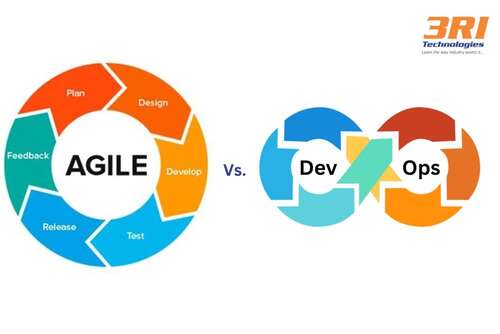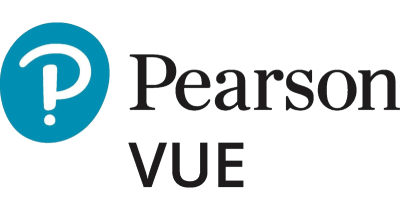Agile and DevOps are both approaches to developing software; their goals are the same: to deliver the final productas quickly and effectively as possible. Even though many businesses want to use both methods, there is often some confusion. What is included in each method? Where do the two meet? Can they collaborate, or is one superior to the other?
In the evolving world of software development, understanding what Agile methodology is and what is DevOps is essential for choosing the right workflow. While Agile focuses on iterative development and customer feedback, DevOps emphasizes continuous integration, delivery, and collaboration between development and operations. The DevOps vs Agile debate isn’t about competition—it’s about choosing the right strategy based on your team’s goals. To master both approaches and apply them in real-world scenarios, explore our DevOps course in Pune. Learn how to bridge gaps between teams, speed up releases, and deliver exceptional results.
As usual, we used the knowledge of experts in the field to explain the two practices and how they are different. Keep reading this blog to learn more about agile vs. DevOps, what is an accurate description of agile and DevOps, and so on.
Stand out with DevOps Foundation Certification
DevOps Methodology vs Agile: Which One Fits Your Project Goals?
DevOps is a process for creating software that unites a company’s development and IT departments. This helps improve productivity and makes it easier for teams to work together. The combination of people, processes, practices, tools, and technology known as “DevOps” makes it possible to deploy code easily and securely.
DevOps is different from traditional software making because it is a continuous building, testing, deploying, and monitoring process. Its main goal is to keep making good software in the right way. Using DevOps has several important benefits, such as making deployments faster, more reliable, and easier to integrate.
DevOps is built on six main ideas: continuous integration, continuous deployment, continuous testing, continuous operations, continuous delivery, and continuous collaboration. When you combine two departments and processes (development and operations), you get more transparency and can focus on automated testing.
Interested to begin a career in DevOps? Enroll now for DevOps Training in Pune.
What Exactly Is Agile?
The Agile methodology is a way to make software that follows the ideas in the Agile Manifesto. It is an iterative approach to developing software and managing projects. The primary focus is on cross-functional teams working together to find solutions, customer feedback to improve quality, and frequent releases to meet deadlines.
Agile development divides tasks into smaller chunks called “sprints,” which usually last between two weeks and a month. The Agile method is based on small deployments at the end of each sprint and putting them all together for testing. It can be implemented with Kanban boards, Scrum, XP, Active Collab, etc.
Below is a description of the four core values that underpin the Agile software development methodology.
- People and Interactions, Not Procedures And Tools
The Agile Manifesto emphasizes the need to prioritize people over processes. It has become standard practice for many software companies to emphasize acquiring the best tools for software development. However, even the most effective tools would be ineffective in the wrong hands. The key to success is putting together the right group of people and getting them to talk to each other and work together to make the workplace healthy and deal with problems as they come up.
- Functional Software Over Thorough Documentation
While documentation is essential, it should not be the focal point. In the past, it was common practice for software teams to spend countless hours documenting processes. The Agile Manifesto states that delivering software to consumers should take precedence over spending too much time on documentation, writing code, and constructing the software.

- Collaboration With Customers Over Contract Negotiations
Contracts used to be a big deal, and much thought and effort went into writing them and negotiating the different terms and conditions. This frequently resulted in misunderstandings because the contract stated one thing, the actual product was another, and the customer’s requirements were entirely different. According to the Agile Manifesto, continuous development and customer collaboration are the best way to guarantee a project’s success.
- Adapting to Change Instead of Following A Plan
As we all live in an ever-changing world, customer priorities, needs, and preferences shift rapidly over time. Therefore, it’s more important than ever for software teams to adopt a flexible and adaptable strategy. The Agile Manifesto emphasizes accepting mid-project changes for the benefit of the project. Agile teams excel at changing direction midstream instead of blindly adhering to a rigid plan.
Want to Upskill to get ahead in your career? Check out the DevOps Online Training.
Similarities between agile and Devops
While Agile technique and DevOps are wonderful in their origins, codecs, and capability, they share many similarities. Both of those ideas are instrumental in empowering organizations to improve operational performance, enhance software program shipping, and ramp up collaboration across teams. Both emphasize creating a collaborative environment, embracing change, that specialize in customer fee, permitting non-stop development, and dashing up transport times. While they’re tailor-made for specific factors of software program development and operations—Agile for handling tasks and DevOps for handling the quit-to-end software lifecycle—they regularly converge in pursuit of a common intention: handing over notable software program quickly and efficiently. Here, we review the important thing points of intersection among Agile and DevOps.
1. Continuous Development
Both Agile and DevOps follow a continuous development cycle. Agile technique requires everyday value determinations of venture and modifications baased on consumer feedback or adjustments in requirements. Similarly, DevOps fosters a continuous integration and continuous deployment technique, encouraging regular code releases and immediate incorporation of client or developer remarks.
2. Focus on Customer Value
One of the number one similarities between Agile and DevOps is their emphasis on purchaser price. Both methodologies attempt to supply splendid software that meet consumer expectations efficiently. They recommend a proactive approach to identifying and addressing client needs, encouraging brief responses to changes in purchaser requirements or market traits.
3. Integrated Team Efforts
Both Agile and DevOps foster an included and collaborative team surroundings. In Agile, pass-practical teams work together sharing and taking part on ideas for the task, while in DevOps the improvement and operations teams come collectively for seamless software shipping. Both highlight the need for special groups to work collaboratively, breaking down silos, enabling quicker selection-making, and enhancing productiveness.
4. Embracing Change
Flexibility and adaptableness are on the center of both Agile and DevOps. They provide a flexible framework to house adjustments at any degree of improvement and adapt to emerging tendencies, needs, or adjustments during improvement or operations, thereby making sure that the end product is relevant, competitive, and person-centric.
5. Feedback Loops
Agile uses feedback loops to always review and adjust the software program development in each sprint. DevOps additionally emphasizes non-stop comments, the use of real-time monitoring systems to apprehend and optimize the overall overall performance of the applications and infrastructure. Both strategies encourage an mindset of non-stop mastering and improvement based totally on remarks, which is essential to live in tune with converting consumer wishes and marketplace trends
6. Faster Delivery Time
Both Agile and DevOps awareness on rushing up the transport time. Agile achieves this by means of breaking the assignment into smaller possible devices referred to as “sprints” and that specialize in one dash at a time. DevOps, alternatively, speeds up delivery by means of automating and streamlining the procedure of software development and operations. Ultimately, each methodologies aim to reduce the time-to-marketplace.
7. Automation
Although no longer a middle precept of the Agile method, automation is regularly utilized in Agile to lessen manual attempt and boom consistency and accuracy of deliveries—ideas equally emphasized in DevOps. In DevOps, automation performs a valuable position in boosting operational efficiency and enabling non-stop deployment and transport.Update your skills with DevOps With AWS Training
Key differences between Agile and Devops
Agile and DevOps are two fairly influential methodologies in task control and software program improvement fields which have transformed the way software merchandise are planned, advanced, examined, and brought. Understanding the nuances and key variations between Agile and DevOps isn’t always simply important for tech specialists, but additionally for those involved inside the techno-managerial factors of a challenge.
- Primarily, Agile is a philosophy, a collection of principles for software program development below which necessities and solutions evolve via the collaborative attempt of self-organizing and cross-useful groups. It promotes adaptive making plans, evolutionary development, early delivery, and non-stop development even as encouraging fast and flexible response to changes.
- On the opposite hand, DevOps is greater of a culture or practice that emphasizes the collaboration among software program development and IT operations teams. The number one purpose of DevOps is to shorten the device’s improvement life cycle at the same time as constantly delivering extraordinary software program that gives price to clients.
- While Agile makes a speciality of methods that enable seamless product improvement, DevOps specializes in doing away with the silos between improvement and operations to establish a culture of collaboration and shared obligation. This holistic method guarantees smoother releases and quicker trouble resolutions, for this reason enhancing the reliability and fine of the software product.
- Another key difference among Agile and DevOps is their scope. Agile particularly deals with changes at the improvement level. It centers on constant revision and refinement of the procedure inside the development group. Conversely, DevOps spans the complete delivery pipeline encompassing a broader scope. It is involved not only with the software development and delivery but additionally considers the operational factors of continuous integration and delivery, and automatic deployment.
- While each Agile and DevOps methodologies promote collaborative work environments and non-stop learning, they operate in a different way of their method to comments loops and interplay factors. Agile includes quick and common remarks loops for the duration of the venture sprint evaluate and retrospective segment, facilitating brief adjustments in the challenge. Oppositely, DevOps makes use of actual-time data from monitoring gear and logs to feed into the machine directly to result in instantaneous adjustments.
- Moreover, Agile advanced to address the constraints of the conventional Waterfall model and boost up the improvement process by using turning in software in small and doable chunks. By assessment, DevOps emerged to cope with the want to launch advanced software faster and greater reliably into the manufacturing environment.
- Furthermore, in Agile, testing is usually performed by way of professional testers inside the assignment group toward the give up of a sprint. In contrast, DevOps initiatives frequently use automatic equipment for repeated checking out of the code in the course of the development cycle, underlining the precept of ‘checking out early and often.’
- Finally, it’s crucial to word that Agile and DevOps aren’t together distinct but may be complementary to one another. Agile’s ideas of collaboration, flexibility, and consumer-centricity can be useful in growing a DevOps culture. Likewise, DevOps’ emphasis on automation, integration, and comments can enhance Agile practices.
Now you are aware of agile and DevOps concepts. Let’s explore agile and DevOps difference
Agile and DevOps Difference
| Parameter | Agile | DevOps |
| What Exactly Is It? | Agile is an iterative methodology that emphasizes teamwork, client feedback, and rapid, incremental releases. | DevOps is the practice of bringing together the development and operations teams. |
| Goal | Agile aids in the management of complex projects. | The core concept of DevOps is the management of end-to-end engineering processes. |
| Task | The agile methodology emphasizes continuous change. | Continuous delivery and testing are key concepts in DevOps. |
| Implementation | Agile methodology can be implemented within various tactical frameworks, including the sprint, the safe, and the scrum. | DevOps is primarily concerned with collaboration and lacks a generally accepted framework. |
| Duration | The management of agile development occurs in “sprints.” This is significantly less than a month for every sprint. | DevOps is focused on meeting deadlines and benchmarks for major releases. The optimal frequency of delivery is DAILY or every few hours. |
| Size of The Team | Small Team is the foundation of Agile. They can move faster when the Team is smaller and has fewer members. | Significantly larger team size as all stack holders are required. |
| Team Expertise | In agile development, everyone must have the same or similar skills. | DevOps divides and distributes skill sets across the development and operations teams. |
| Feedback | The client provides feedback | The internal team provides feedback. |
| Communication | Scrum is the most prevalent method for Agile software development. Daily scrum meetings are conducted. | Communication in DevOps involves specifications and design documents. To successfully manage the deployment process, the operational team must fully understand the software release and its implications for the hardware and network. |
| Documentation | The Agile methodology prioritizes the working system over exhaustive documentation. It is ideal to be adaptable and responsive. It might be harmful when attempting to delegate deployment-related duties to another team. | Because the operational team is responsible for deploying the software, DevOps highly values process documentation. Automation reduces the effect of inadequate documentation. It isn’t easy to transfer the necessary knowledge in developing complex software. |
| Automation | Agile does not place a high value on automation. Nonetheless, it is beneficial. | Automation is the main objective of DevOps. It is founded on the maximization of software deployment efficiency. |
| Focus | It emphasizes both functional and non-functional preparedness. | More emphasis is placed on operational and corporate readiness. |
| Importance | Agile is centered on software development. | Development, testing, and implementation are all crucial. |
| Tools Used | Kanboard, JIRA, and Bugzilla are a few well-known Agile tools. | Popular DevOps tools include Puppet, Chef, TeamCity OpenStack, and Amazon Web Services (AWS). |
| Pros | Agile provides a quicker development cycle and better defect recognition. | DevOps facilitates the Agile release cycle. |
| Challenges | Teams must be more productive to use the agile method, which is difficult to accomplish consistently. | For the DevOps process to work well, it needs environments for development, testing, and production. |
Final Word
Agile methodology vs. DevOps is complementary. DevOps is not an attempt to eliminate or replace Agile. However, they complement one another exceptionally well. It accomplishes this by eliminating unnecessary time waste and streamlining the process, allowing an application to move from deployment to production more quickly. Agile-adhering organizations adhere to automated testing and delivery processes by extending their boundaries only to the staging area. Therefore, Agile and DevOps do not expand their boundaries and remain within their respective territories. Therefore, 3RI Technologies is the ideal place for anyone looking for a DevOps vs. Agile course alongside practical work experience.








